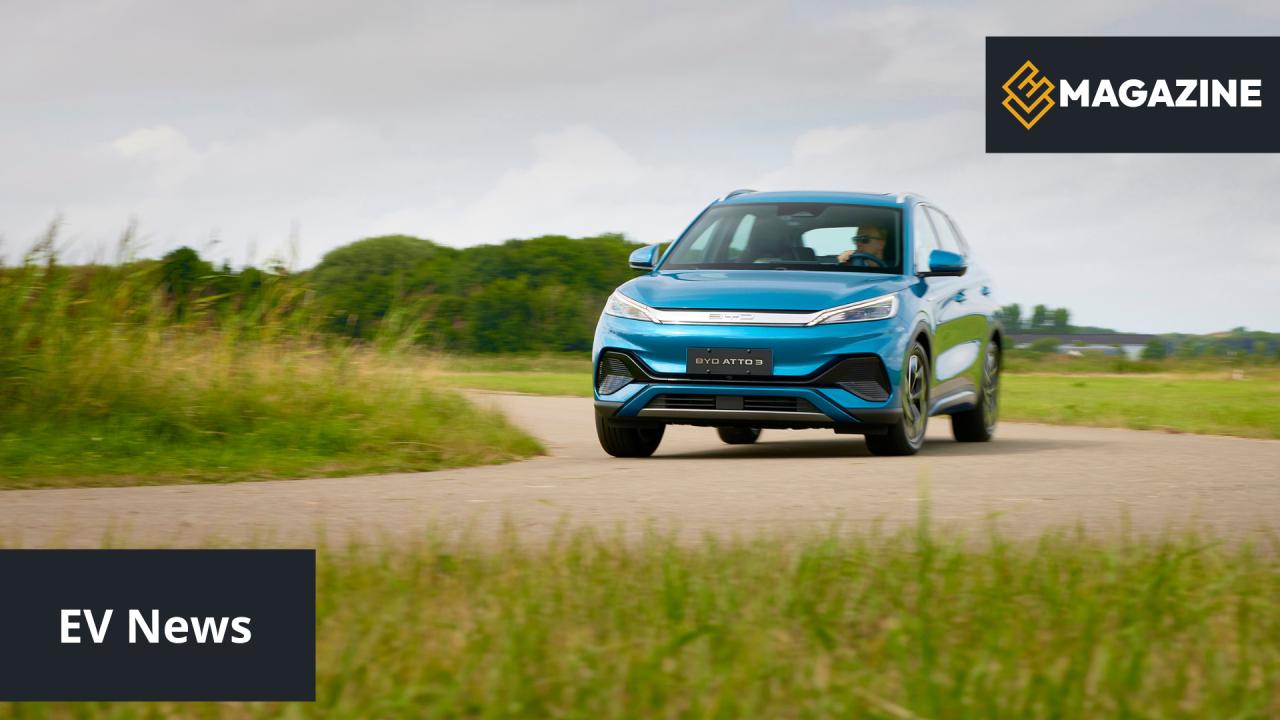BYD Aims High: Sales Target Set at 4 Million Units
Chinese electric vehicle manufacturer BYD has recently raised its sales target for 2024 to an impressive 4 million units. This ambitious plan was disclosed in a note by Morgan Stanley analyst Tim Hsiao, who cited comments from the company's management. The goal is to strengthen BYD's position in the global market and respond to the increasing demand for electric vehicles.
Growth Strategy and Innovation
BYD is focusing on growth through innovation and expanding its product portfolio. The company is investing in the development of new models and technologies aimed at attracting a broader range of customers. With this move, BYD is not only increasing its sales targets but also solidifying its position as a leader in the field of electromobility.
European Union Adjusts Proposed Tariffs on Chinese Electric Vehicles
In response to growing competition in the electric vehicle market, the European Union is fine-tuning its proposed tariff rates on electric vehicles imported from China. According to recent information, the EU is making adjustments to its initial proposal for final duties on Chinese EVs.
A source familiar with the matter has revealed specific changes to the tariff rates:
- Tesla's proposed tariff rate will decrease from 9% to 7.8%.
- BYD's tariff remains unchanged at 17%.
- Geely's rate will slightly decrease from 19.3% to 18.8%.
- A peak rate of 35.3% will apply to SAIC and other companies not cooperating with the EU investigation.
It's important to note that these tariffs are in addition to the EU's standard 10% import duty for cars. The European Commission, which is conducting the anti-subsidy investigation into EVs made in China, has declined to comment on these adjustments.
For more detailed information on this development, you can refer to the Reuters article on the subject.
Japan’s Subsidies and EU’s Contrasting Approach
Interestingly, while the European Union has been quick to impose tariffs in response to China's subsidies for its electric vehicle manufacturers, it remains to be seen how the EU will react to similar support from Japan. The Japanese government recently announced 326 billion yen (2 billion €) in subsidies and investments for four of its leading automakers—Mazda, Nissan, Subaru, and Toyota.
Subaru received the largest share of 156.4 billion yen, which will be used to build a battery factory in collaboration with Panasonic. Meanwhile, Mazda, with its smaller share of 28.3 billion yen, will benefit from battery modules for its future electric vehicle. Nissan secured 55.7 billion yen to produce lithium-iron phosphate batteries for kei cars, and Toyota is using its funds to complete development on next-generation solid-state batteries. While the precise amount Toyota received is not publicly disclosed, it is estimated to be the remaining 85.6 billion yen.
As these subsidies have only just been announced, it remains unclear whether the EU will react similarly to its approach with China. While the EU has expressed concern over Chinese subsidies and imposed tariffs, its response to Japan’s support for its automakers is still unfolding. It will be interesting to observe whether this discrepancy in treatment continues or if the EU takes a more unified stance on subsidies across global automakers.
Market Impact and Competition
The adjustment in tariff rates could have a significant impact on the electric vehicle market in Europe. These tailored tariffs may affect the competitiveness of various Chinese manufacturers differently, potentially reshaping the landscape for EV imports and providing European consumers with a diverse range of options and prices. This move also underscores the complexity of trade relations and the growing importance of China in the global automotive industry.
The Future of Electromobility
The constantly changing market dynamics and technological advancements make electromobility one of the most intriguing segments of the automotive industry. Companies like BYD and policy changes such as the EU's tariff adjustments demonstrate the evolving nature of the electric vehicle market.
As the global automotive landscape continues to transform, electric vehicles are clearly at the forefront. The ambitious targets set by manufacturers like BYD and the nuanced policy shifts in major markets like the EU are shaping a new era of mobility. These developments not only promise a more sustainable future but also herald increased competition and innovation in the automotive sector.
For consumers, these changes could translate into a broader range of electric vehicles with varying price points. As manufacturers strive to meet growing demand and navigate complex regulatory landscapes, we can expect to see rapid advancements in EV technology, range, and affordability.
The coming years will be crucial in determining the leaders in this new automotive paradigm. With traditional automakers and new entrants all vying for market share, the electric vehicle market is set to become one of the most dynamic and competitive industries globally.

